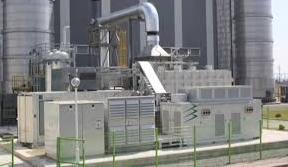Updated By: LatestGKGS Desk
NPL made Hydroelectric cell which produce electricity from water

National Physical Laboratory produced Hydroelectric cell which produces electricity with water without power
Scientists from National Physical Laboratory have developed a unique way of producing electricity from water without using power or chemicals by a hydroelectric cell.
Scientists used zinc and silver as electrodes to make a cell that produces electricity which further uses nanoporous magnesium ferrite to diverge water between hydroxide (OH-) and hydronium (H3O) ions.
Scientists used Magnesium, zinc and silver to produce the electricity
Magnesium has high correspondence for hydroxide which diverge the water to Hydroxide and Hydronium which gets stuck in nanopores of Magnesium ferrite which helps in division of water.
In Magnesium ferrite, 20% of magnesium is replaced with lithium which further increases the sensitivity of magnesium ferrite.
The water gets trapped in the sites where oxygen is less which helps in division of water.
If four cells of Magnesium ferrite will be connected in the series, the voltage increases and can light a plastic fan or LED of 1 watt.